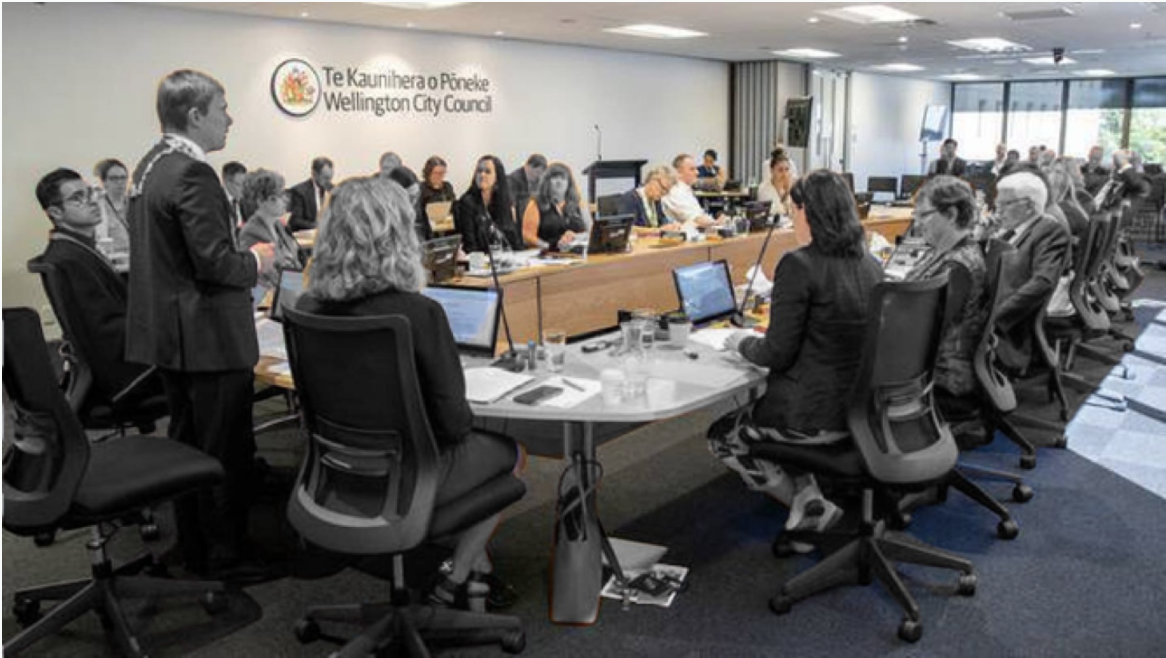Q: How many people work at your local council?
A: About a third of them.
This was told to me as a joke, but I did a statistical analysis of productive outputs versus wage costs and it is a pretty accurate estimate. I know a lot of council staff who are good, honest, dedicated workers who put the hours in, but the system creates inefficiency. Time spent in meetings is time spent not doing real tasks.
This is a problem not only for citizens but also for council workers themselves. I also know a lot of former council staff who left because a sense of low achievement led them to question their own worth. They feel more productive in the private sector and therefore feel more valued.
Continuing my series of identifying actual council problems and proposing achievable solutions, today I am focusing on middle management.
Councils have become large organisations. Hamilton City Council employs 1,100 people directly, and hundreds of contractors. Like all councils, they spend millions on expert consultants and Local Government New Zealand (the association of councils) allows them to share ideas and information. The Local Government Funding Agency allows councils preferential access to finance at a discounted rate and insurance is shared collectively.
Economic theory suggests that large organisations should be more efficient (known as economies of scale), yet it is clear that council projects and even the day-to-day operations are inefficient and expensive. I compared council hourly charge-out rates for planning consultants and building inspectors to the equivalent private-sector skill level. Unlike the private sector, council does not need to advertise for clients (they are a regulatory monopoly), chase invoices (they charge up-front), provide a return on investment, or carry business risk. Economies of scale should mean lower overheads due to rent, HR, payroll, data services, and much more being part of the council umbrella. The charge-out rates were an astonishing 40% higher than the market rate.
As salaries were comparable to the private sector, the excessive charging is covering internal overheads at a staggering rate. The economies of scale have not worked. The organisation is insanely inefficient. The front-line worker is propping up four layers of management, and the top three layers (group manager, chief executive and councillors) have no understanding of the specialist fields in which many staff work. The management structure is adding no value.
In fact, it has a negative impact. Middle management is reduced to an administrative role rather than decision making. This creates a culture where individuals are afraid to take responsibility. It is safer to pass decisions up the chain, or to transfer them to committees.
In the private sector, committees exist to bring a range of experts together to help reach the best decision. In the public sector, committees exist so that individuals can’t be blamed.
It does not prevent bad decisions; instead, it merely delays all decisions and adds to the cost of simple tasks.
Some people think I am anti-council. I am not. The solution is to give middle management more power, not less. People need authority to make decisions by themselves, so they can get on with their real job. In this way, they can resolve problems when and where they arise, without having to pass the buck to a committee filled with other people too scared to take responsibility.
Worse, I am seeing staff who will deny, ignore and hide problems, rather than having to take them to a committee of their peers, particularly where they may be exposed for a mistake. The result is problems don’t get fixed until they become serious and expensive enough for senior management – but senior management doesn’t have the detailed knowledge to solve them. This leads to a spiral of consultants and more administrators to prevent future problems, but who, in reality, are adding to the systemic failure.
Making the change is easy. Being given responsibility will help good staff stand out for promotion. It will help bad staff stand out for cutting the overheads. The outcome for citizens will be both lower costs and a better service.
Please share this BFD article so others can discover The BFD.

